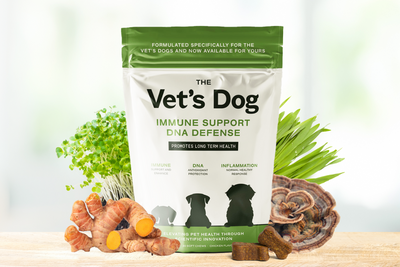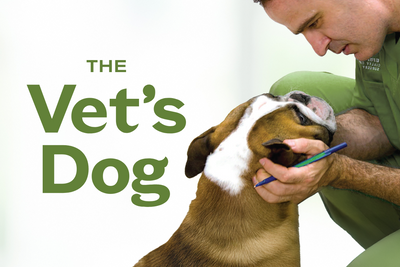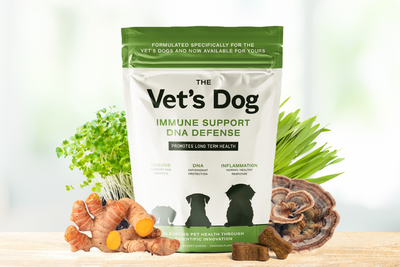— By Dr. Henri Bianucci, Board-Certified Veterinary Surgeon
As a veterinary surgeon, I was trained in the best that modern Western medicine has to offer—and it is remarkable. From advanced diagnostics to life-saving surgeries, Western veterinary medicine offers powerful tools for acute care and emergency intervention.
Over time, though, I began to explore a broader perspective on long-term wellness—one that included not only treatment, but also prevention and balance.
Ancient Roots, Modern Curiosity
Traditional Eastern medicine focuses on the whole body. It emphasizes maintaining harmony, supporting natural rhythms, and encouraging daily practices that align with wellness goals.
Curious to learn more, I began researching how Eastern botanical ingredients have been used historically and how they’re now being studied in the context of modern veterinary science.
This journey changed how I think about care—not as a reaction, but as a proactive routine.
Integrating Approaches for Everyday Support
At The Vet’s Dog, we draw inspiration from both Eastern and Western traditions. Our approach focuses on supporting the body through thoughtful daily habits, including nutrition, movement, rest, and natural ingredients that reflect both scientific research and time-tested use.
Some of the ingredients that reflect this philosophy include:
-
Turkey Tail Mushroom – Studied for its naturally occurring polysaccharides
-
Broccoli Sprouts – Known for their concentration of sulforaphane
-
Barley Grass – A source of natural antioxidants
-
Turmeric – Traditionally valued for its vibrant plant compounds
These ingredients were selected with wellness support in mind, and reflect our commitment to helping dogs thrive in their everyday lives.
Final Thoughts
Eastern and Western approaches don’t have to be in conflict—they can complement each other. By integrating modern science with traditional wisdom, we create a more holistic view of canine wellness.
As always, consult your veterinarian before making changes to your dog’s wellness routine or introducing new supplements.






